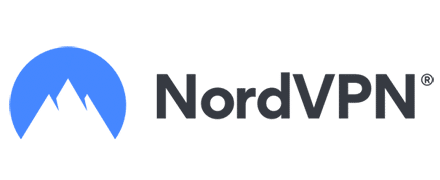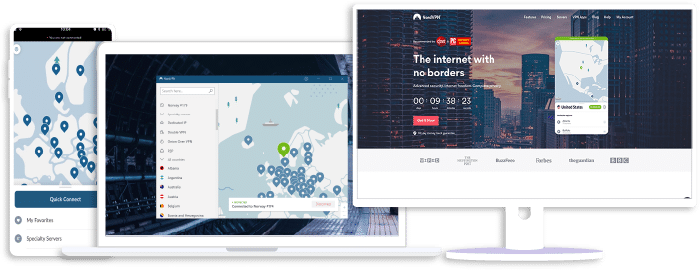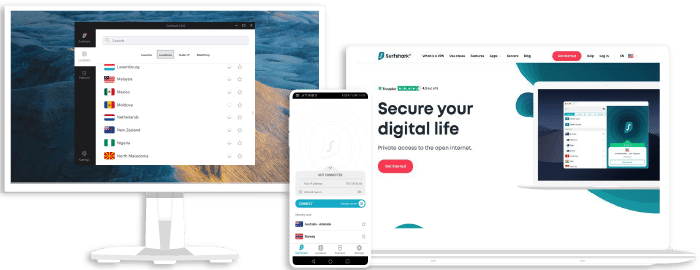What Are the Benefits of SOCKS5 Proxy?

A proxy server is a tool that aims to keep you anonymous as you go about your activities on the internet. Routing your internet traffic through a proxy does not make your connection secure. However, it prevents you from exposing your IP address to bad actors and keeps you anonymous. In addition, it can also help to get past internet censorship and geo-restrictions that prevent you from accessing certain platforms or websites.
There are different types of proxy servers based on their functions. SOCSK5 proxies are proxy servers that use the SOCKS protocol (SOCKS5 is the latest version) to communicate between the server and the client. This article focuses on understanding SOCKS5 proxies and the advantages they offer to the everyday internet user.
What Is a SOCKS5 Proxy?
You need to understand what a proxy server is before fully grasping what a SOCKS5 proxy does. A proxy server stands between a user device and a server the device wants to communicate with. Proxies act as a gateway or middleman between local networks and servers on the internet. SOCKS, which means Socket Secure, is a layer 5 (Session Layer of the OSI model) network protocol that deals with the communication between a server and a client.
Since it is a layer five protocol, it doesn’t have anything to do with the layers below it in the OSI model. In addition, it can handle several types of traffic, including HTTP, HTTPS, SMTP, FTP, and POP3. As a result, you can use it for web browsing, email, file transfers, and peer-to-peer sharing. There are two versions of SOCKS proxies: SOCKS4 and SOCKS5.
SOCKS5 is the most recent and secure version of the protocol. It is more secure than SOCKS4 because it offers more authentication methods. In addition, it supports both TCP and UDP proxies. With SOCKS5 proxies, you can use three types of authentication methods.
- Null Authentication: You don’t need to provide any form of authentication to use the proxy.
- Username/Password Authentication: You need to provide login credentials before you can use the proxy.
- GSS-API Authentication: Both the client and the server provide authentication methods at the operating system level before you can use it.
How Does a SOCKS5 Proxy Work?
When you connect to a SOCKS5 proxy server, every request from your device or an application configured to use it passes through the server first before reaching its destination. The following happens when a client application or device sends a connection request to a SOCKS5 server.
- The client sends a connection request with a list of authentication methods it supports.
- The server assesses the authentication methods and chooses the one that suits it. Note that the connection will fail if the server does not accept any authentication method.
- The client can send data to the server if it passes the authentication phase above.
Once you have established a connection with a SOCKS5 proxy server, it changes the IP address of data packets that pass through it before they reach their destination. As a result, it masks your IP address and allows the destination server to think the request is from it.
For example, if your IP address is 192.168.100.10, and you send a request to a web server via a SOCKS5 proxy with IP address 192.168.20.10, the destination server will only see the IP address of the proxy and not yours. This provides anonymity but does not make your online connection secure, as SOCKS5 proxies do not encrypt data.
Benefits of Using a SOCKS5 Proxy
People mainly use SOCKS5 for P2P activities because of its performance benefits, but it has other advantages. Below, we look at the benefits of using a SOCKS5 proxy.
1. Circumvent Geo-Restrictions and Censorship
Geo-restriction technology prevents people that are not in a country or region from accessing websites, platforms, or applications from that region. However, when you use a SOCKS5 proxy server in that region (virtual or physical), you can bypass geo-restrictions and access geo-blocked content.
Also, routing your traffic through a SOCKS5 proxy can give you access to websites that have blocked your IP address. In addition, in countries with heavy censorship, you can have access to an uncensored internet by routing your traffic via a SOCKS5 proxy server that’s outside the country. However, it won’t help bypass censorship in countries that use deep packet inspection (DPI) to enforce censorship.
2. Fewer Errors and Improved Performance
Unlike most proxies, SOCKS5 proxies don’t rewrite data packet headers, leaving a low chance for mislabelling or misrouting errors. As a result, they offer better performance compared to other proxies. In addition, SOCKS5 proxies supporting UDP and TCP allow users to have a reliable and fast connection.
TCP ensures reliability by making sure that data packets arrive in the correct order. On the other hand, UDP does not care if the packets arrive in the right order or at all, which allows a faster connection. This is one reason why it is ideal for P2P (peer-to-peer) activities, especially torrenting.
3. No Traffic Limitations
SOCKS5 proxies are not limited to a specific type of traffic, unlike other proxies. For example, HTTP proxies only accept HTTP and HTTPS traffic. On the other hand, SOCKS5 proxies can handle different types of internet traffic because they work at the session layer of the OSI model (layer 5).
4. Easy To Set Up
Connecting to a SOCKS5 proxy does not require any technical know-how; you just need to know the IP address/hostname of the proxy server and authentication credentials (if there’s any).
SOCKS5 Proxy Vs. HTTP Proxy
HTTP proxies are similar to SOCKS5 proxies because they are both proxies, and they act as the middleman between your device and the intended destination of data packets. However, the main difference between both lies in their functions. Firstly, an HTTP proxy deals with only HTTP traffic, which means you can only use it for web-related activities. Hence, it won’t work for anything outside the scope of the HTTP protocol.
On the other hand, a SOCKS5 proxy is not limited to a single protocol, as it supports several, including HTTP, POP3, FTP, SMTP, etc. This makes it attractive to users who do not want to be limited to taking advantage of a single protocol. Secondly, SOCKS5 proxies are more secure than HTTP proxies. Unlike HTTPS proxies, they can’t read data that passes through them. This reduces the chance of man-in-the-middle attacks yielding any results.
However, because SOCSK5 proxies don’t rewrite data headers, the chances of bad actors seeing your IP address are high. You can establish a tunnel connection with an HTTP proxy to make it more secure.
Lastly, SOCKS5 proxies are generally faster than public HTTP proxies. However, that is not the case with private HTTP proxies. This is because public HTTP proxies do not offer dedicated channels, and many users share the same resources. Both proxy types have their similarities and differences. At the end of the day, it is the proxy that works for you that matters.
SOCKS5 Proxy Vs. VPNs
Some people might confuse a SOCKS5 proxy and a VPN to be the same since they both mask your IP address from bad actors. However, a VPN is a more advanced tool than a proxy for anonymity and security. For starters, a VPN server fully encrypts every data packet that passes through it. On the other hand, SOCKS5 proxies don’t encrypt traffic; they only mask your IP address.
Asides from encryption, VPNs are feature-rich; they offer more security and privacy features than proxies. In addition, they provide advanced security features and give users the flexibility needed to control their security.
However, because encryption is resource-intensive, SOCKS5 proxies are generally faster than VPN servers. Therefore, you will get better download and upload speeds using a proxy server than a VPN server. Plus, SOCKS5 proxies work well with P2P activities. While some VPNs have P2P-optimized servers, they are not as quick as SOCKS5 proxies.
In conclusion, deciding whether to use a VPN or a SOCKS5 proxy depends on your needs. A VPN is the smart choice if you need security and privacy, while you should use a SOCKS5 proxy if you want to focus on torrenting.
VPNs With SOCKS5 Proxy Services
In some cases, you don’t have to choose between a VPN and a SOCKS5 proxy, as some VPN service providers offer SOCKS5 proxy services. Let’s look at a couple of such VPNs below.
NordVPN
Overall score: 9.6
- 8,700+ servers available in 129 countries
- Connect up to 10 devices simultaneously
- Great security features
- Verified no-logs policy
- Unblocks streaming platforms
30-day money-back guarantee
For starters, NordVPN is one of the best VPN services globally. This elite VPN service has ten SOCKS5 proxy servers you can use for your P2P activities. You don’t have to buy a different subscription for these servers, as they come with your regular NordVPN subscription. It is easy to set up, and NordVPN’s support center has adequate information to help its users.
NordVPN provides military-grade end-to-end encryption to ensure that your traffic is secure, and its fast NordLynx protocol ensures your connection is reliable. Also, it does not store logs and keeps its headquarters in a privacy-friendly country. This VPN has gone through audits twice and passed each time. In addition, it offers Double VPN, obfuscation, an adblocker, RAM-only servers, unlimited bandwidth, and a 24/7 support team. NordVPN is budget-friendly and has a 30-day cash-back policy.
Best offer: $3.96/month (Save 70%)
30-day money-back guarantee
Surfshark
Overall score: 9.5
- 4,500+ servers in 100+ countries
- Allows unlimited simultaneous connections
- Integrates stealth mode
- Multihop feature available
- Webcam protection from unauthorized apps
30-day money-back guarantee
Sufshark uses the Shadowsocks protocol, which is a combination of SOCKS5 and open-source encryption infrastructure. Its Shadowsocks servers work well for people that intend to bypass China’s internet censorship. Using the Shadowsocks protocol with Surfshark is straightforward. Just follow the instructions on Surfshark’s support center, and you should have no issues. Besides, its support team is available 24/7 if you encounter any problems.
Like NordVPN, Surfshark has many security and privacy features, including 256-bit encryption, Double VPN, an adblocker, a Kill Switch, and built-in leak protection. Its headquarters is in the British Virgin Islands, and it offers some of the cheapest subscription plans.
Best offer: $1.99/month (Save 87% + 3 Months Free)
30-day money-back guarantee
Should You Use a Free SOCKS5 Proxy?
It is a bad idea if you value privacy and performance to use a free SOCKS5 proxy. The reasons are not far-fetched, and we will look at them below.
1. Performance
Free SOCKS5 proxies do not offer dedicated connections; you share the same resources with other people. As a result, bottlenecks are likely to occur when the load on the server is high. In addition, because they are free, you are less likely to have access to sophisticated network infrastructure.
2. Privacy
Again, with no one paying for their services, free SOCKS5 proxies are more likely to monitor your connection and sell your data to third parties than paid ones. Advertising companies are willing to pay to get their hands on your connection history.
3. Security
Using a free SOCKS5 proxy can put you at risk of malware infection. There is the possibility of malicious entities owning free proxies to infect your device with malware. In addition, free SOCKS5 proxy servers can be vulnerable to attacks because of a lack of sophisticated network infrastructure.
Conclusion
Staying secure while using the internet has become necessary; you never know who’s watching you online. While SOCKS5 proxies do not provide any form of data encryption, they effectively keep you anonymous by masking your IP address. We have highlighted some of the benefits of using SOCKS5 proxies and hope you can take advantage of them when you have the chance.
Join the TechRobot Newsletter
Actionable tips on online security, the best VPNs, unblocking guides, and special offers — straight to your inbox.



